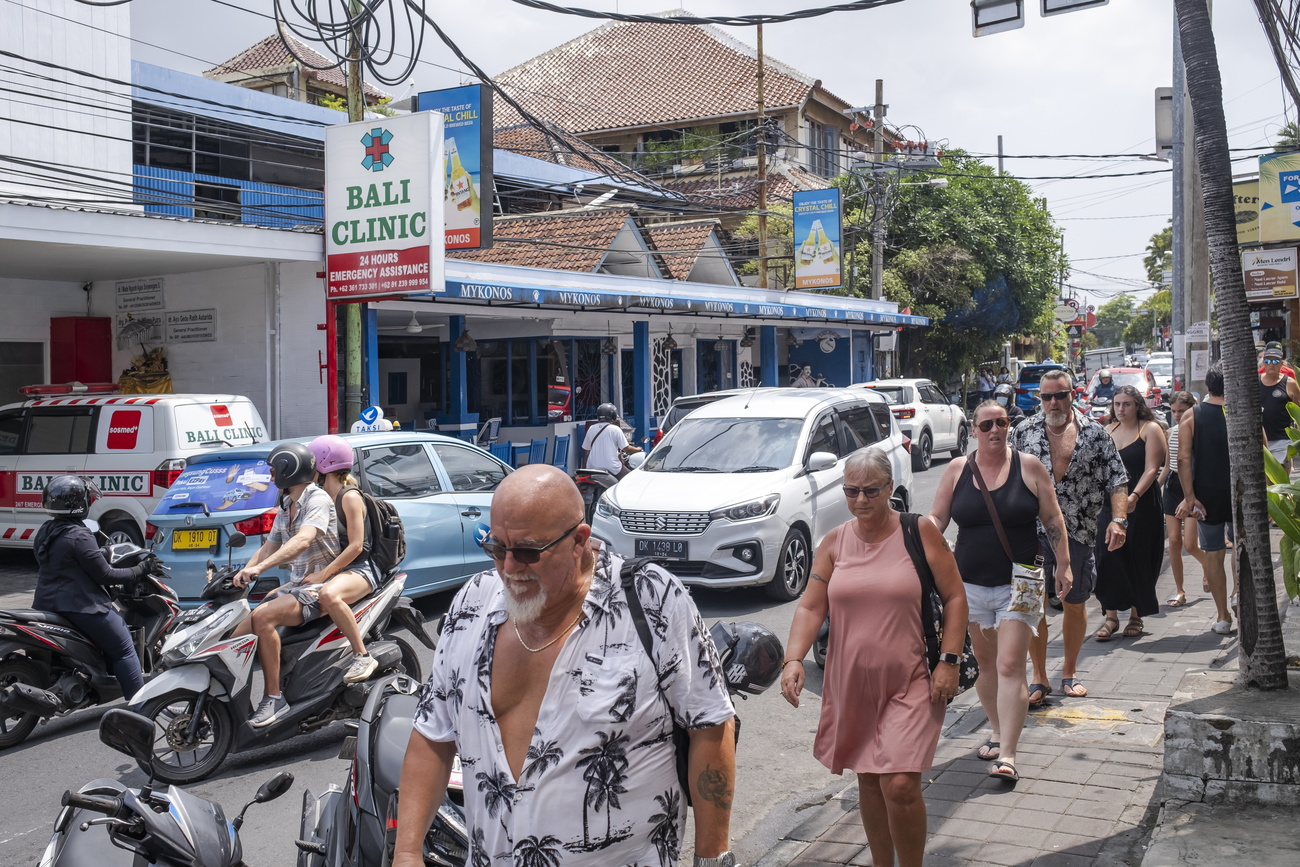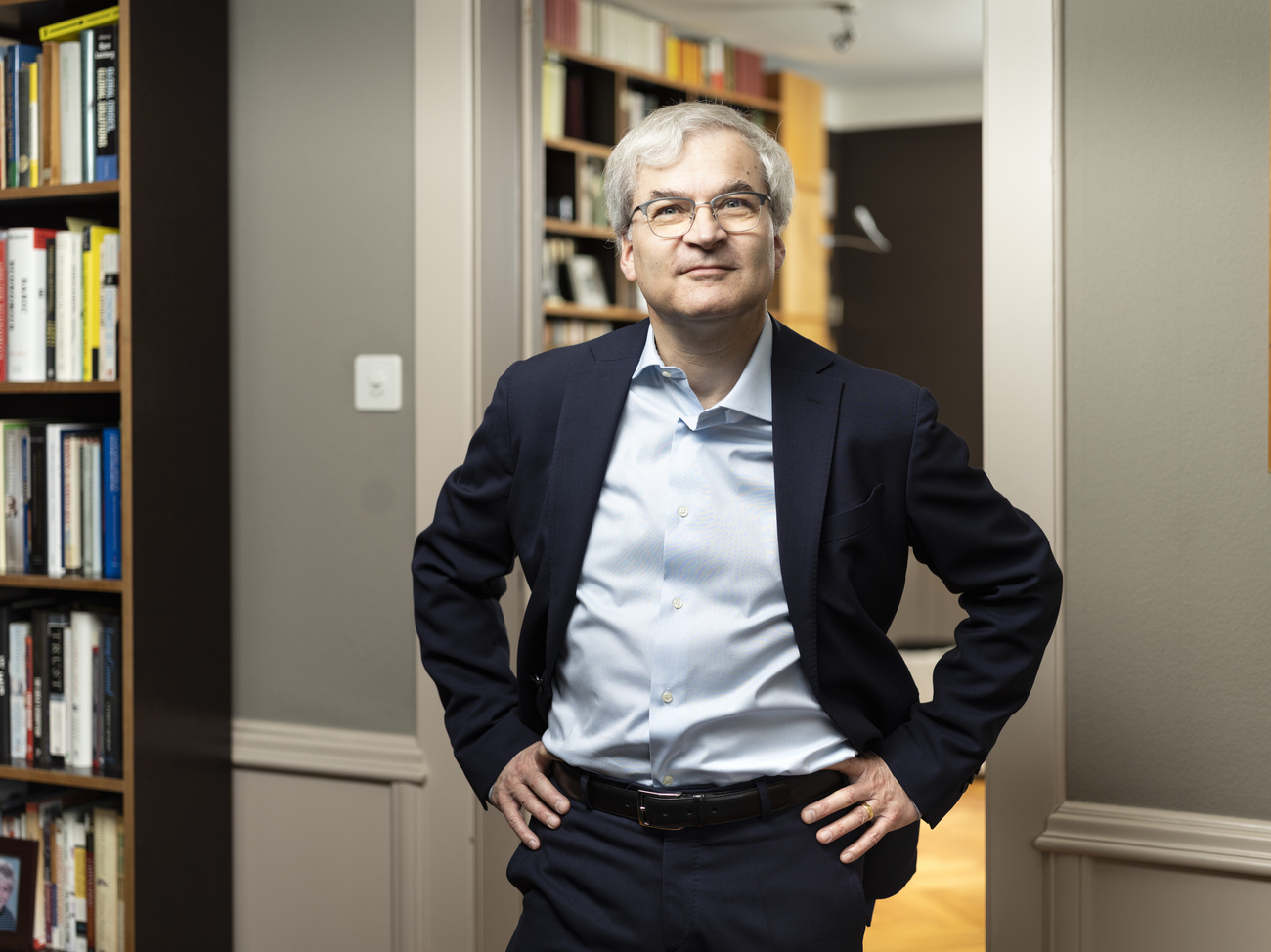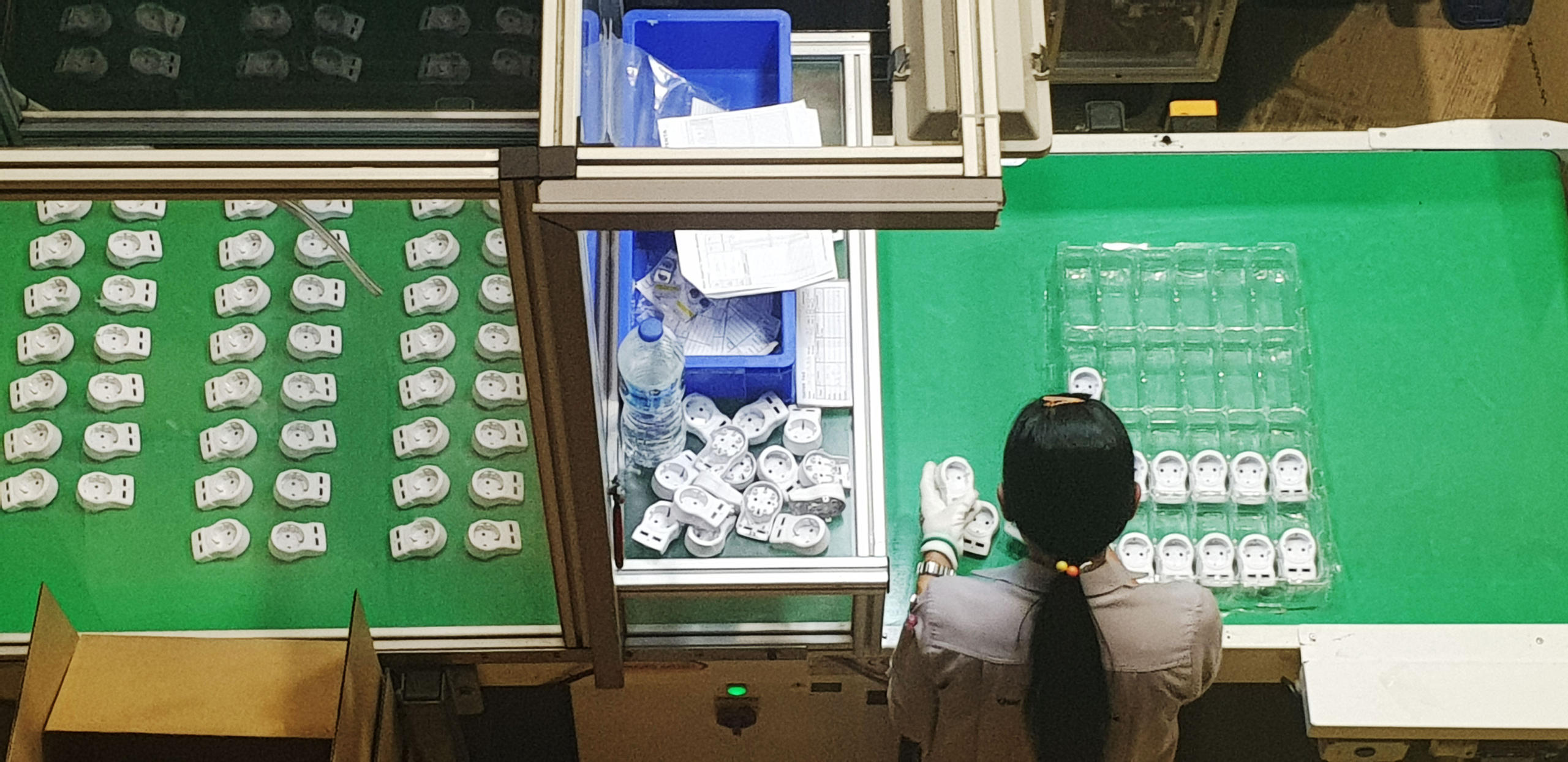Welfare for Swiss expats: fewer but increasingly complex cases

How much social welfare does Switzerland transfer abroad? And why is the amount getting smaller and smaller? An in-depth look at the financial aid that Bern provides to its citizens abroad.
Let’s call her Anna. A Swiss citizen born in 1962, Anna has lived in Bali for 14 years without interruption. And, according to a decision by the Federal Administrative Court at the end of last year, she has been receiving welfare from Switzerland since 2019.
Anna is one of a few hundred Swiss nationals abroad who receive social assistance. The foreign ministry cannot say exactly how many there are.
According to the foreign ministry, the system doesn’t allow the number of people receiving support to be filtered. What is documented, however, is how many “transactions” are opened each year. Last year there were 270, the lowest number ever.
The individual “transactions” can be many things: a single person, a family, but also a one-off payment for repatriation, monthly support or one-off, exceptional medical treatment.
A new transaction is opened in the foreign ministry’s accounts for each subsequent application in the following year. However, as the foreign ministry explains, the statistics include both accepted and rejected transactions, plus those written off as irrelevant.
Of the applications received in recent years, only 48% have been accepted. In these cases, social welfare benefits were ultimately paid out.
The foreign ministry is therefore very strict about payments. A team of social workers processes the requests centrally in Bern. The cases are managed there and the decisions are also made there.
Four full-time positions are reserved for this in the foreign ministry. Bern and the field offices use the same electronic case management system to manage everything from the application to the decision.
Declining trend
The foreign ministry also keeps centralised records of payments. The amount of social assistance transferred abroad last year totalled exactly CHF847,297 ($965,000), and the figure is going down. The number of transactions opened is also decreasing.
One would actually expect an increase in requests: not only is the number of Swiss nationals living abroad growing, but inflation is on the rise and economic uncertainties and crises are becoming more frequent.
However, things quietened down after the Covid pandemic. As foreign ministry spokesperson Elisa Raggi explains, 2020 saw an increase in requests for social assistance in connection with the consequences of Covid-19. There had been some one-off assistance.
Individual cases such as repatriation for medical reasons could also quickly become expensive and distort the statistics – as in 2022, for example.
Raggi also points out that social welfare benefits are adjusted to the country’s basket of goods. According to this explanation, the strong franc has a positive effect on the amount of Swiss social welfare expenditure abroad.
Plenty of work for emigrants in Thailand
This plays a role in Thailand, for example, a hotspot for Swiss social welfare payments abroad. The foreign ministry almost needs a full-time consular post to process the many applications there.
However, the decreasing number of cases does not mean less work for the relevant section of the consular service, as the cases have become more complex in recent years.

More
‘Receiving assistance from foreign representations is not a right’
Yvonne Rohner, head of consular protection at the foreign ministry, says the foreign ministry has observed that people with mental health problems or elderly people without sufficient health insurance cover are also emigrating.
If they then find themselves in a personal crisis abroad with existential consequences, they lack a support network. The same applies to medical emergencies.
Those who are poorly integrated are repatriated
If someone is not sufficiently integrated in their country of residence, they are not legally entitled to social welfare benefits locally. In many cases, this also applies to senior citizens who emigrate after retirement.
If this is the case, the social workers decide in favour of repatriation, which is also financed if necessary.
Incidentally, people with multiple nationalities are not entitled to Swiss assistance if non-Swiss nationality is predominant. This can also lead to intensive investigations.
One of the criteria for determining the predominant nationality is the country in which the person lived during their childhood and education.
What about Anna? According to the Federal Administrative Court ruling, in July 2021 she applied to the Swiss embassy in Jakarta, the capital of Indonesia, for social welfare benefits, as she had already done in previous years (2019 and 2020). The foreign ministry’s consular directorate approved her application again and enclosed a budget calculation with the decision.

More
Do Swiss pensioners living abroad ‘milk’ the system?
However, Anna didn’t agree with this requirement and lodged an appeal with the Federal Administrative Court and requested an adjustment to the budget calculation. She complained that the budgeted household allowance does not take account of price trends and would at best be suitable for people in a large family household.
“Although she lives frugally and largely buys locally produced products, the benefits awarded to her do not cover her everyday needs,” according to the court judgement.
More for Anna
However, the Federal Administrative Court concluded that the lower court, i.e. the consular Service, had lawfully determined the amount of the household allowance.
But Anna was found to be right on one point: the ancillary housing costs and the costs for electricity and gas. The Federal Administrative Court ruled that she should be granted a recurring benefit: the equivalent of CHF7.60 a month, which Anna is now entitled to after all. The Swiss government must therefore pay her CHF91.20 more social assistance in Bali a year.
Anna is one of the very few exceptions who have at least partially won their appeal. There aren’t many: according to the foreign ministry, only 28 complaints were received in the five years from 2019 to 2023. Of these, only two, including Anna’s, were at least partially upheld. Eight are still pending.
Edited by Balz Rigendinger. Translated from German by DeepL/ts

In compliance with the JTI standards
More: SWI swissinfo.ch certified by the Journalism Trust Initiative











You can find an overview of ongoing debates with our journalists here . Please join us!
If you want to start a conversation about a topic raised in this article or want to report factual errors, email us at english@swissinfo.ch.